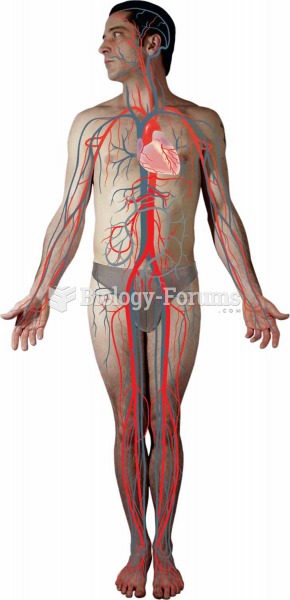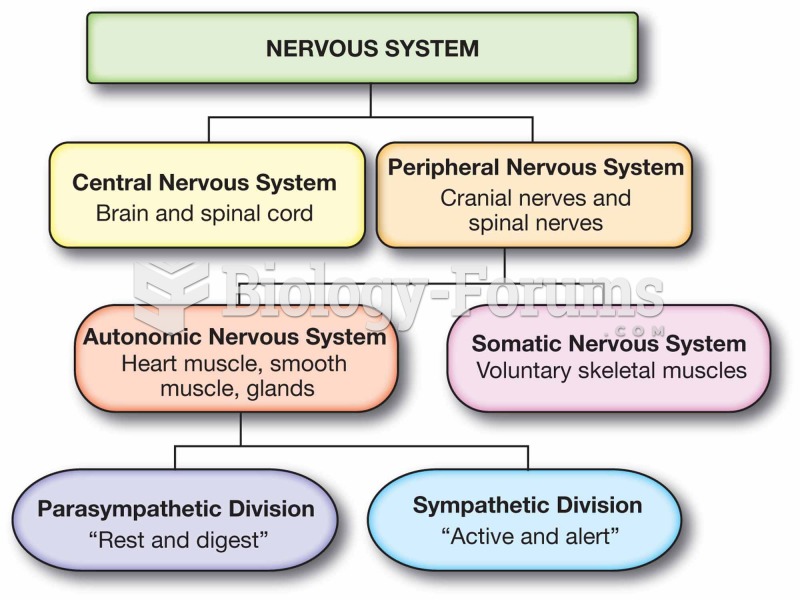|
|
|
Of the estimated 2 million heroin users in the United States, 600,000–800,000 are considered hardcore addicts. Heroin addiction is considered to be one of the hardest addictions to recover from.
Blood is approximately twice as thick as water because of the cells and other components found in it.
There are more nerve cells in one human brain than there are stars in the Milky Way.
The most dangerous mercury compound, dimethyl mercury, is so toxic that even a few microliters spilled on the skin can cause death. Mercury has been shown to accumulate in higher amounts in the following types of fish than other types: swordfish, shark, mackerel, tilefish, crab, and tuna.
Blood in the urine can be a sign of a kidney stone, glomerulonephritis, or other kidney problems.







